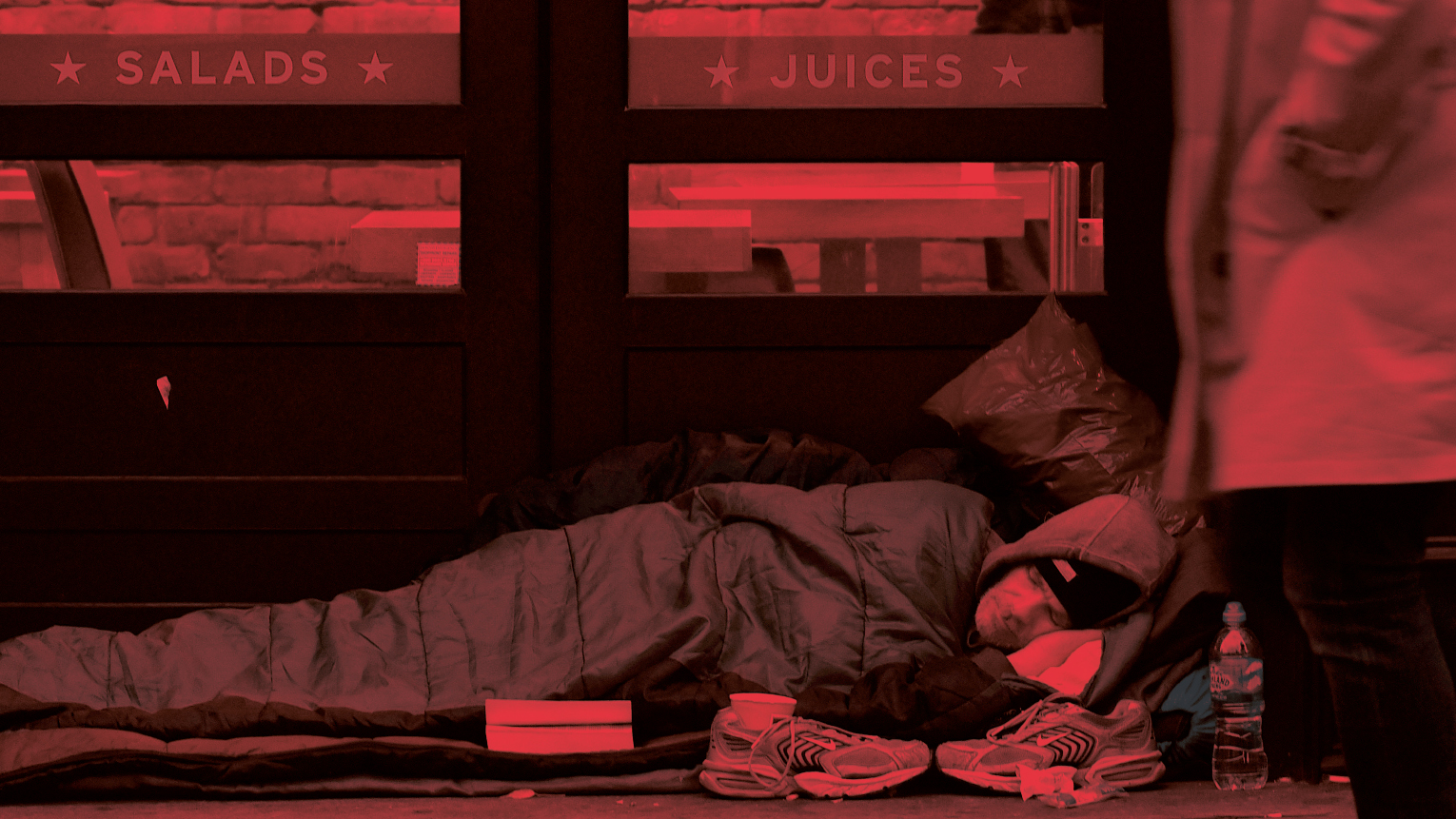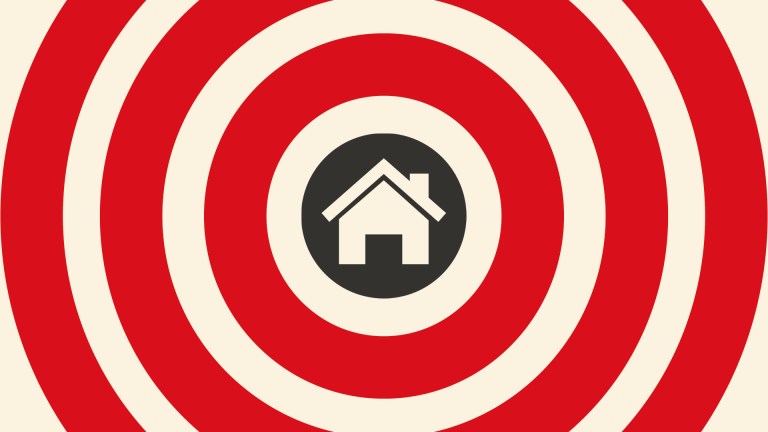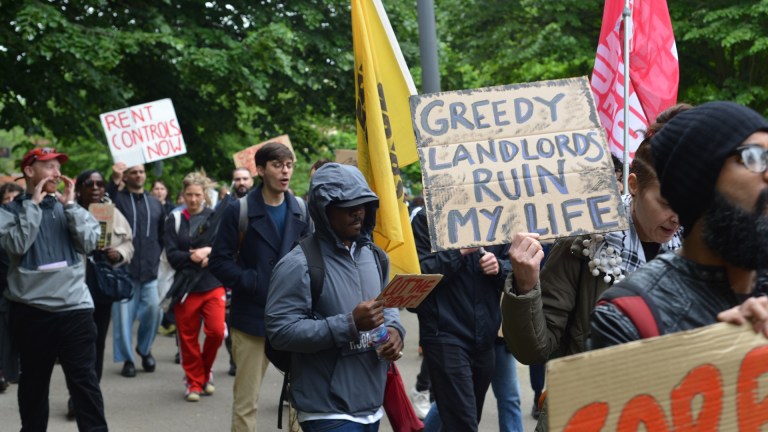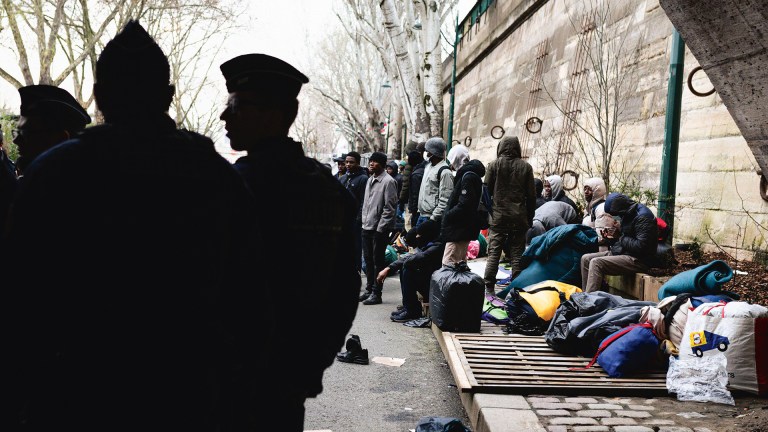How many people are homelessness in the UK?
As we know, homelessness is difficult to quantify. There are many different types of homelessness; as well as rough sleeping, many people may find themselves stuck in temporary, insecure accommodation like hostels or shelters.
There are currently 112,660 households in England living in temporary accommodation, including 146,800 children. The sheer number of people living in temporary accommodation, which has increased by 10% in the last year alone, has seen councils warning that they are being left on the brink of bankruptcy as a result.
Meanwhile in Scotland, 15,625 households are living in temporary accommodation while in Wales the number is 5,700 households.
Another method of counting how many people experience homelessness is keeping track of how many households contacted councils for help, known as statutory homelessness.
A total of 317,430 households needed support from councils in England in 2023 – the highest on record.
No-fault (section 21) evictions are a leading driver of homelessness and the Westminster government promised to ban them in 2019.
Ministers are set to axe no-fault evictions in the upcoming Renters’ Reform Bill – although there is no date for when the ban will come in as the legislation continues its passage through Parliament – but rates are still surging in the meantime.
A total of 25,910 households in England needed council support to avoid becoming homeless after receiving a section 21 notice in 2023, which is also a record high.
As for Scotland’s latest official homelessness statistics, 30,272 open homelessness cases were on local authority books between April and September 2023.
In Wales, the latest statutory homelessness figures showed 15,306 applications for support from local authorities with homelessness between April and September 2023.
As for the number of people rough sleeping, the latest official count estimated a total of 3,898 people were sleeping rough on a single night in autumn 2023 in England. That stat is up by more than a quarter on the 3,069 people in 2022 and more than double the 1,768 counted in 2010 when the Tories came to power.
Traditionally, the official rough sleeping figures are often thought to be a considerable underestimate as they rely on single-night counts and estimates by local authorities.
The Combined Homelessness and Information Network (Chain) is thought to be a more accurate method. This tracks the flow of rough sleeping over a longer period with multiple agencies reporting contact with people on the streets. However it only currently operates in London.
Nevertheless, annual Chain figures show a much higher number of people sleeping rough and that number has increased sharply in the last year. A total of 10,053 people were spotted sleeping rough on the streets of London between April 2022 and March 2023.
More recent quarterly Chain statistics counted 4,118 people sleeping rough in London between January and March 2024 up by a third in a year.
In Wales, the official count has been suspended due to the Covid-19 pandemic but recent management statistics show that an estimated 121 people are sleeping rough around the country as of February 2024.
Scotland doesn’t use the same method as England and Wales. Scottish councils measure how many people apply to them for help with rough sleeping.
In 2022-23, 2,438 households reported sleeping rough in the three months before making a homelessness application to their local council while 1,500 households said they’d been rough sleeping the night before. Both of these figures are lower than before the pandemic.
Both of these figures are lower than any previously recorded since records began in 2002/03.
Counting the number of people rough sleeping is notoriously difficult. Often people can be hidden meaning they are missing from statistics.
This is a particular issue for women who face an increased risk of violence and often choose not to bed down on the streets, instead seeking shelter in places like transport hubs, cafes or even choosing to walk all night instead.
A coalition of homelessness and women’s organisations in London joined forces to tackle the issue in October 2022.
Their first national census across England found the number of people sleeping rough could be as much as nine times higher than the official rough sleeping count. In the 41 areas covered in the census, frontline teams found 816 female rough sleepers compared to just 189 covered in the official count.
People who might be described as “hidden homeless” are often slipping through the cracks. Crisis has estimated that as many as 62% of single homeless people do not show up on official figures.
The Office for National Statistics carried out a review into the scale of hidden homelessness across the UK in March 2023 but statisticians noted that the available information means “it is not currently possible to estimate the true scale of hidden homelessness across the UK”.
However, the review did lay out the many types of hidden homelessness, including sofa surfing with friends or relatives, living in unconventional structures like mobile homes or a tent or overcrowded accommodation or squatting in disused buildings.
ONS statisticians also revealed that women, young people and people from ethnic minority backgrounds are more likely to experience hidden homelessness and, therefore, missing from homelessness statistics. This could mean they are unable to access support to help them into a secure, permanent home.
Which country has no homeless people?
Homelessness is an issue that affects every country and there are different approaches to tackling the issue too.
Finland has perhaps come closest to solving the problem of street homelessness. Their adoption of the Housing First model over the last 30 years has seen rough sleepers given a home alongside intensive wraparound support to help them adapt to their new surroundings and to deal with issues like addiction or mental health problems.
The Housing First model has become a big part of the UK’s response to homelessness and has proven particularly successful in Scotland with England and Wales developing programmes.
But the Finnish success story is the result of a 30-year commitment by successive governments and it remains to be seen whether the Housing First model can play such a significant role in ending homelessness in the UK.
Finland was cited as a benchmark as Prince William launched his Homewards programme to end homelessness.
The Westminster government announced it was extending rough sleeping pilots in the West Midlands, Manchester and Merseyside as part of the strategy to end rough sleeping by 2024.
England is lagging behind its smaller neighbours in Scotland and Wales, according to Crisis’ Homelessness Monitor report covering Great Britain.
England has much higher rates of the worst forms of homelessness than the devolved nations and more of its homelessness spending is spent on temporary accommodation compared to prevention and support, academics found
What can you do about it?
If you see someone sleeping rough in England and Wales, send details of where and when you see them, as well as a brief description of the person, to StreetLink using their website. Scotland has no centralised service so you should check for contact details of your local council.
Alerts are monitored by volunteers at St Mungo’s who check information and forward them on to outreach teams. Every day hundreds of alerts are received by StreetLink.
And, of course, for more than 30 years The Big Issue has been on the frontline offering a way out, and one of the best things you can do is to buy this magazine every week, take your copy and support your vendor as they work hard to earn their way out of the poverty trap.
This article is updated regularly with the latest information.









